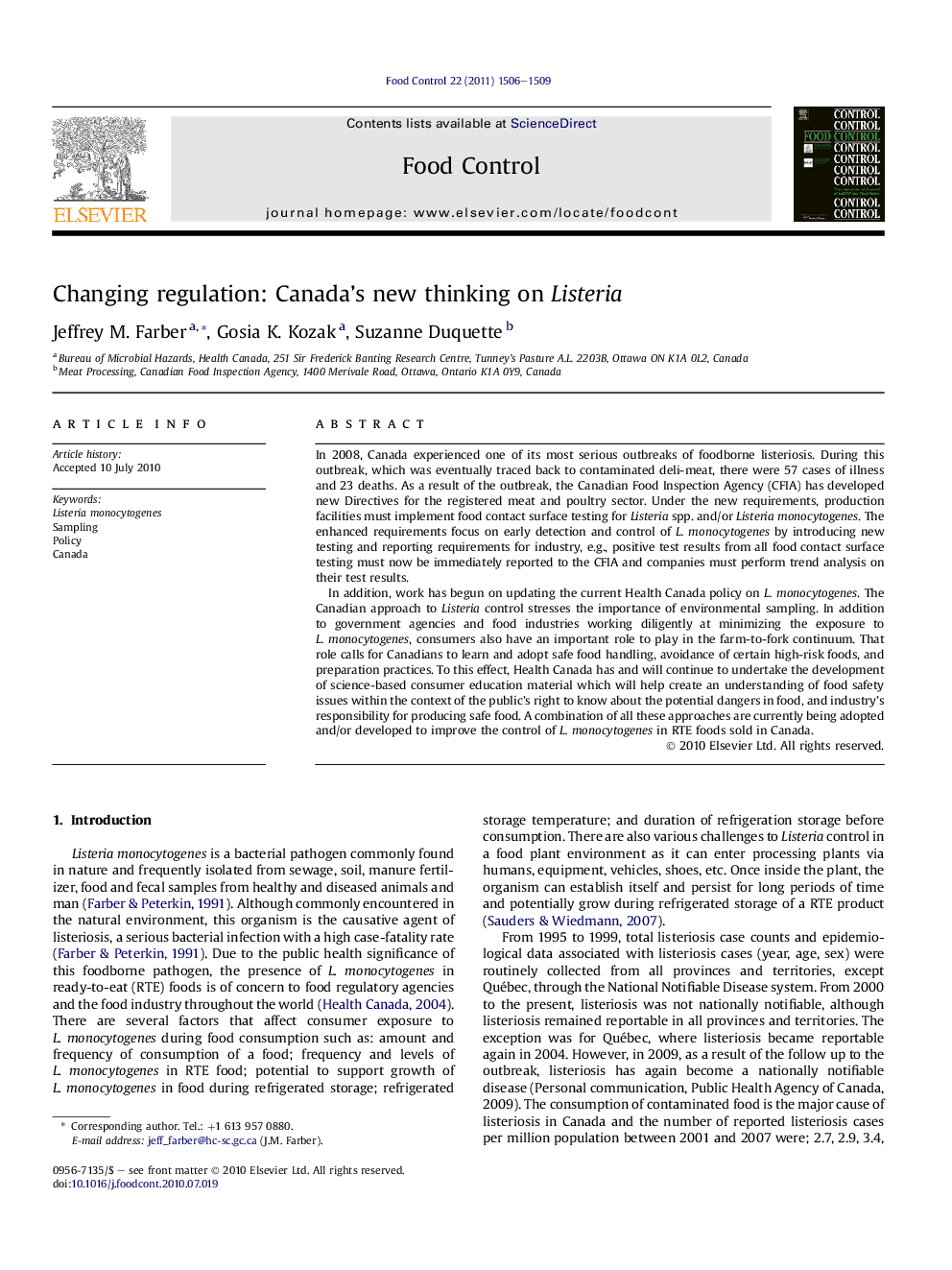| Article ID | Journal | Published Year | Pages | File Type |
|---|---|---|---|---|
| 4559590 | Food Control | 2011 | 4 Pages |
In 2008, Canada experienced one of its most serious outbreaks of foodborne listeriosis. During this outbreak, which was eventually traced back to contaminated deli-meat, there were 57 cases of illness and 23 deaths. As a result of the outbreak, the Canadian Food Inspection Agency (CFIA) has developed new Directives for the registered meat and poultry sector. Under the new requirements, production facilities must implement food contact surface testing for Listeria spp. and/or Listeria monocytogenes. The enhanced requirements focus on early detection and control of L. monocytogenes by introducing new testing and reporting requirements for industry, e.g., positive test results from all food contact surface testing must now be immediately reported to the CFIA and companies must perform trend analysis on their test results.In addition, work has begun on updating the current Health Canada policy on L. monocytogenes. The Canadian approach to Listeria control stresses the importance of environmental sampling. In addition to government agencies and food industries working diligently at minimizing the exposure to L. monocytogenes, consumers also have an important role to play in the farm-to-fork continuum. That role calls for Canadians to learn and adopt safe food handling, avoidance of certain high-risk foods, and preparation practices. To this effect, Health Canada has and will continue to undertake the development of science-based consumer education material which will help create an understanding of food safety issues within the context of the public’s right to know about the potential dangers in food, and industry’s responsibility for producing safe food. A combination of all these approaches are currently being adopted and/or developed to improve the control of L. monocytogenes in RTE foods sold in Canada.
